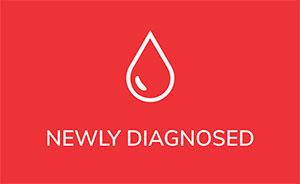Dr. Pagel is a CLL specialist out of Swedish Hospital, Seattle. WA whom I interviewed at ASH 2017 about a project that is close to my heart, quality improvement.
Our motto is smart patients get smart care.
Dr. Pagel is writing the corollary: Smart doctors give smart care.
What Dr. Pagel’s team did was assess how CLL patients are cared for in 20 different centers across the USA to establish a baseline, then intervened with specific education for the healthcare providers and their team. They next studied what changes occurred 6 months later.
Take Away Points:
- 10 consecutive charts of patients with CLL were retrospectively reviewed per provider.
- After the audits, feedback was provided to the physicians and their teams by CLL experts.
- The audit-feedback webinar intervention focused on improving the CLL clinical assessment, patient-centered care, and care coordination practices.
Findings:
- In community practices, IgVH mutation status was only assessed and documented in 1 of 7 of the audited chronic lymphocytic patients’ charts.
- When reassessed after the educational intervention, there was a dramatic improvement to 9 out of 10 patient charts.
- Rates of chart documentation were significantly higher in the post-intervention audit versus the baseline samples for many important measures including:
- Rai staging (+23%),
- flow cytometry (+22%),
- FISH testing for genetic abnormalities (+26%),
- assessment of functional status using the Eastern Cooperative Oncology Group (ECOG) scale (+10%).
- There also were improvements in patient education and counseling. Post-intervention the random chart reviewed documented that provided:
- care coordination (+17%),
- patient counseling on CLL treatment options (+20%),
- treatment risks and benefits (+18%).
These interventions aren’t just making a better paper trail for the chart. There are improving patient outcomes and patient engagement in their own care.
Conclusion:
Community hematologists/oncologist are busy and may not have the time to stay up to date on a rare cancer, CLL ,where the treatment landscape is fast changing.
Dr. Pagel and his team have piloted an effective way to improve the providers’ management of their CLL patients, and therefore their length and quality of their life. Please see our section on putting together your CLL team,but if this intervention expands, there is reason to be hopefully that excellent chronic lymphocytic leukemia care will be easier to access away from experts.
For more about IVgH, please see this interview with Dr. Tam.
For more on the other CLL testing such as flow cytometry and FISH, please see our glossary subsection of diagnosis.
Please enjoy this short interview on quality improvement.
Here is the actual abstract presented at ASH 2017 in Atlanta, GA.
Stay strong.
We are all this together
Brian
Volunteer Medical Director, CLL Society

















